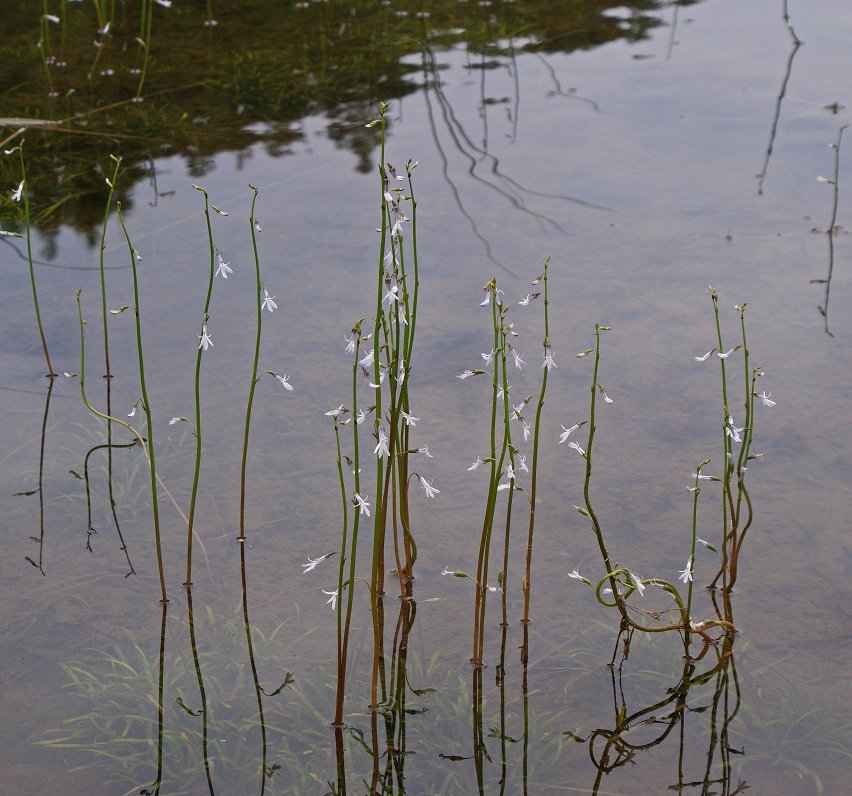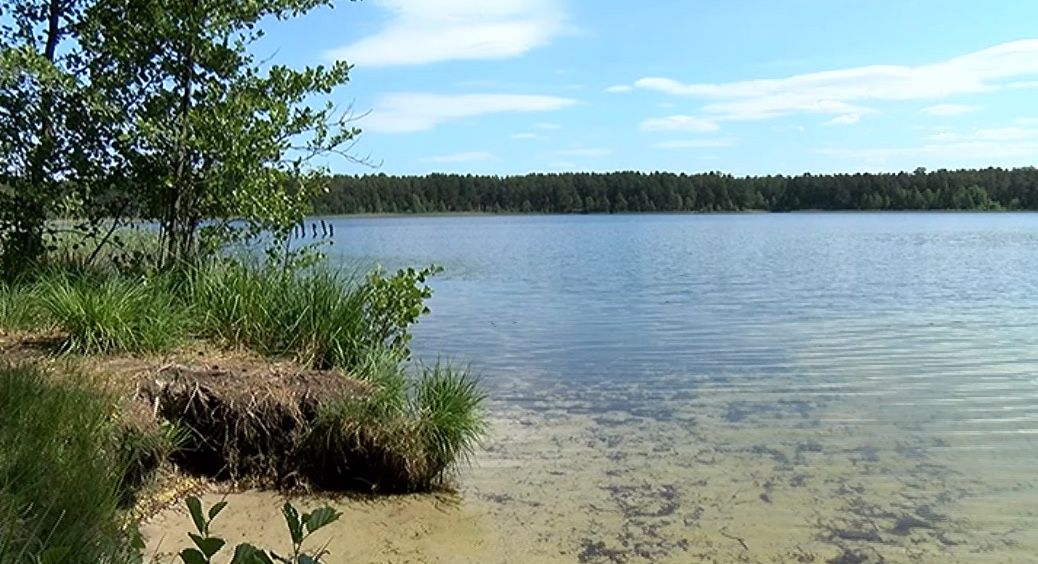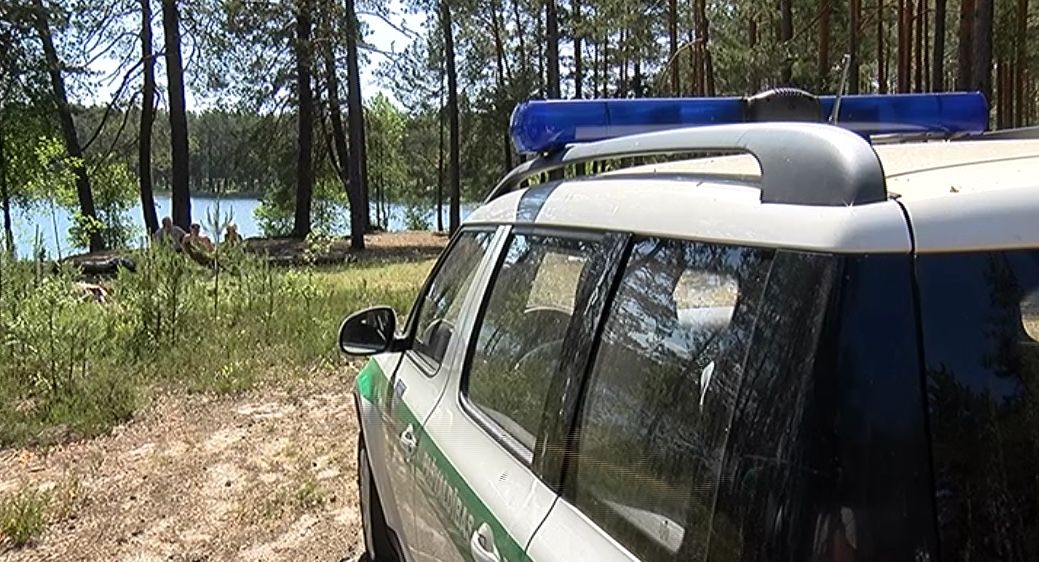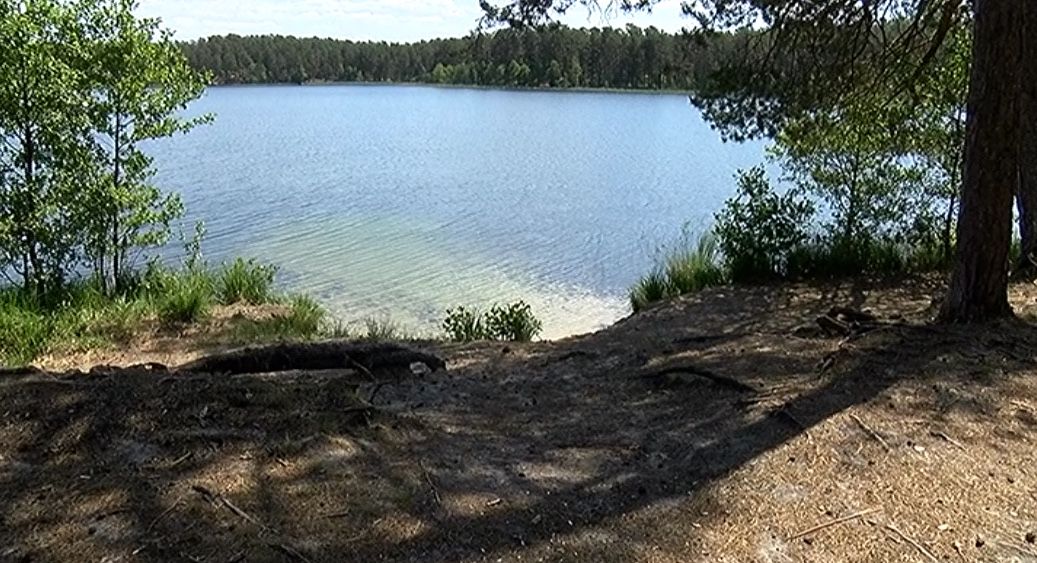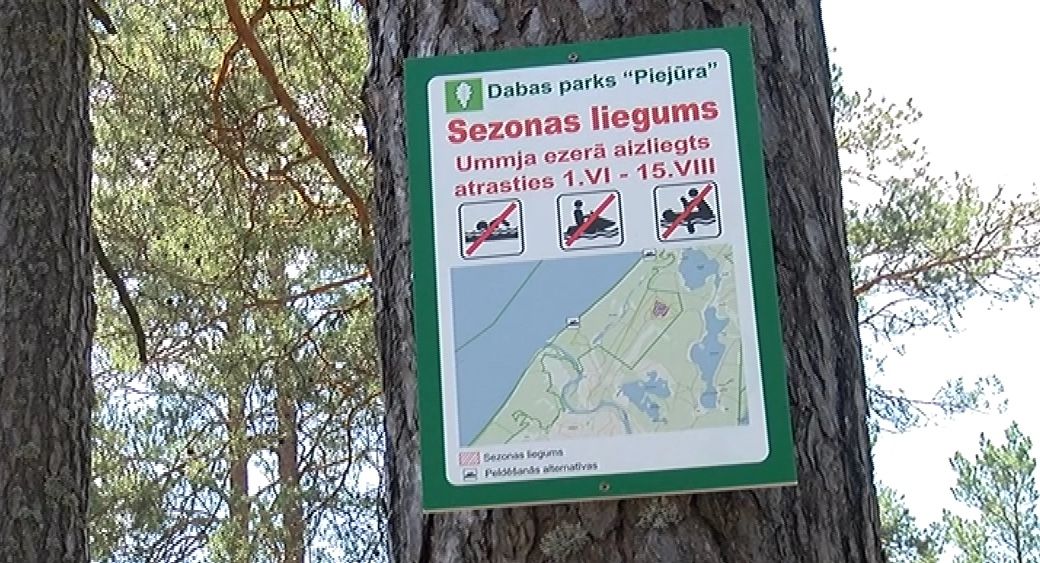The task of the police is to ensure that no one gets near the lake in a car or boats or even swims in it. “It is a fantastic lake, fed by underground streams, with no river flowing into it, so that's why it's so clear and protected,” said Dzirkalis.
“Swimming in it is prohibited from June 1 to August 15. There are people who understand, and there are those who don't know, although there's a lot of information on this lake everywhere, and there are also those, who don't want to know that this lake is barred for recreation,” said the representative of the police.
“The plant is important of course, but even more important is the lake itself as an ecosystem, as this is one of Latvia's clearest lakes. This must be hard to believe, that a lake on the outskirts of Rīga can be one fo the cleanest and clearest, but that is true.
“Number 3, top 3, let's say, and because of the lack of nutrients in it, and because of the fact that no river flows into it, no ditches or anything that could pollute it, it feeds on rainwater, spring and ground waters. Therefore, it is very poor in nutrients, but such waters poor in nutrients are particularly favored by rare plant species, and one of these happens to be the water lobelia, a rare flower, found only in very clean waters,” explained Andris Širovs, the director of the Nature Conservation Agency's Pierīga Regional Administration.
This is not the first year the prohibition has been introduced, and the lake is surrounded with signs listing the regulations. Nonetheless, the policemen have encountered a few people unwittingly intruding upon the area. The chief of police Gints Dzirkalis then informs the people why the lake is barred to visitors.
“We get many different questions, why is swimming prohibited, and so we strive to take preventive action and inform those people, so that their own rights are not violated. As much as possible, we patrol the area in a car or a quadricycle. We try not to seem brash and enlighten people as to the regulations,” said Dzirkalis.
It was reported that a group of people were found swimming in the lake. Even though no one was immediately punished, Andris Širovs affirms that there is a fine for violating the rules
“This violation would be a violation of the regulations of the Cabinet of Ministers – so the fine for being in the lake area during the prohibited period may range from 30 to 1000 euro.
“But of course the aim is not, first of all, to punish, but to inform. This is quite a unique situation, since there are no lakes in Latvia where swimming would be prohibited. We have many lakes with fishing and boating prohibitions in order to protect bird nests and such, but these stringent swimming prohibitions are really very rare. But this is one of Latvia's clearest lakes, and it would be worthwhile to preserve it as a hallmark of Latvian nature,” said the representative of the Nature Preservation Agency.
The flower itself is not yet abloom, but will burst into small white blossoms after the Līgo holidays.
“The actual growing of the flower occurs under the surface of the water in the shallows of the lake, at the depth of around 50-70 cm, and then after the Jāņi festival, white blossoms start to appear on the thin stalk. In principle, it is spread through the whole length of the lake, so you can recognize it close to the shore by its white flowers,” Širovs explained.
The swimming prohibition is in place until August 15, and until then the growing and blooming stages of water lobelia will be protected by the state police. It is not, however, against the regulations to take a stroll by the lake and observe the blooming of this rare flower.
